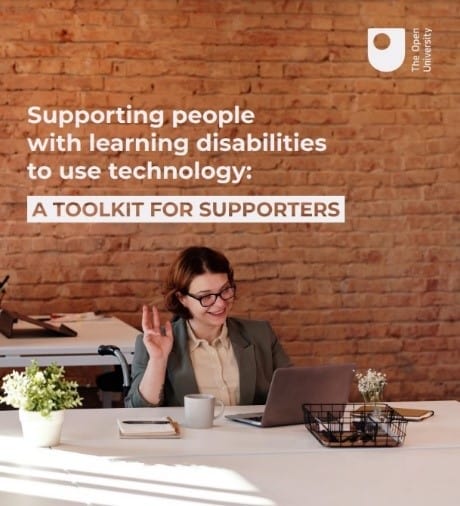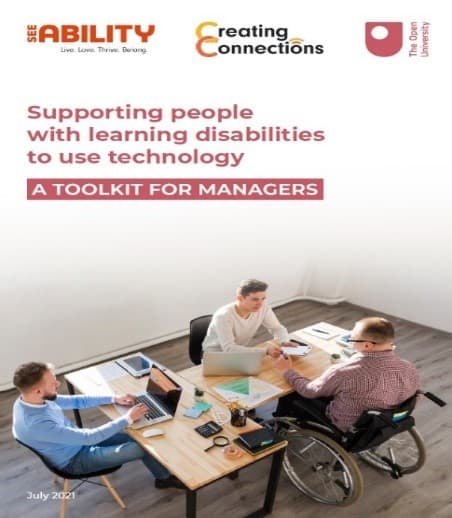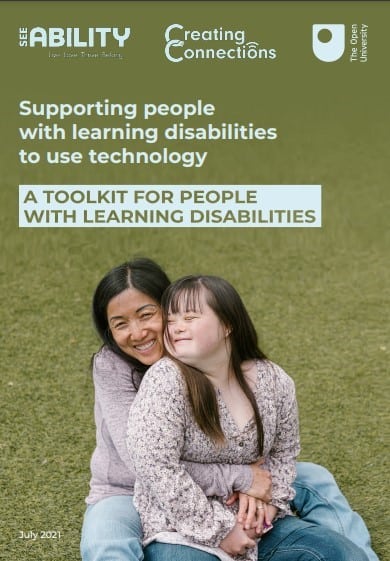EXCLUSIVE: How to support people with learning disabilities to use tech with free comprehensive toolkits
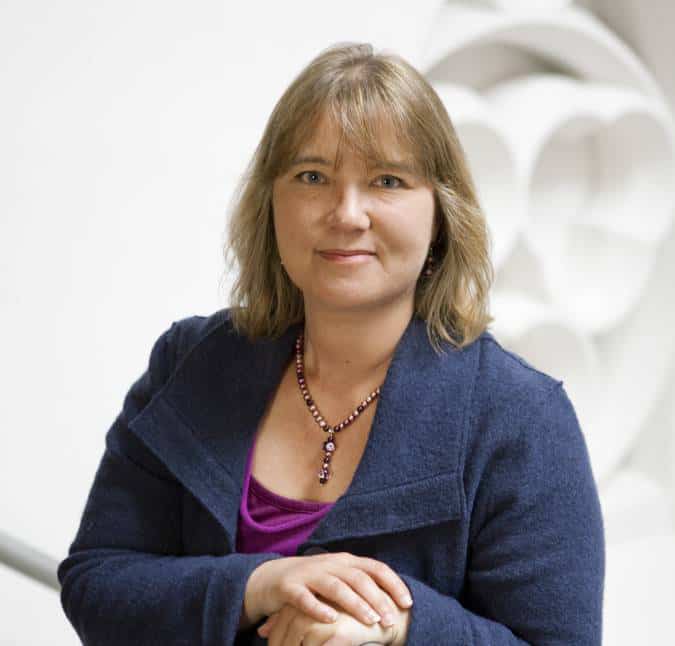
Professor Jane Seale from the Open University discusses the journey to creating three different toolkits – one for support workers, one for managers, and one for people with learning disabilities – that help individuals with learning disabilities to use technology for greater inclusion, participation in society, and independence.
During the pandemic many of us have realised the importance of being able to use technologies such as smartphones, tablets, WhatsApp and Zoom in order to be able to keep connected with our friends and family and stay mentally well.
However, many people with learning disabilities were not able to get online. In many cases, this was because the people in their circle of support, such as paid support workers, day service staff, residential care or supported living staff, lacked the confidence, skills or awareness needed to help them access and use internet-enabled devices.
This is not a new issue.
Most academic papers that evaluate the use of technology by adults with learning disabilities conclude that support staff need more training. Typically, it is argued that support staff need digital skills and online safety training. However, there has been very little examination of the wider aspects of support.
Do support staff need more than technical skills to be able to successful support people with learning disabilities to access and use technology?
In a study conducted at the height of the pandemic in 2020, I surveyed and interviewed 104 supporters who were helping people with learning disabilities to get online. I drew on their experiences to identify the key factors that underpinned the support they provided.
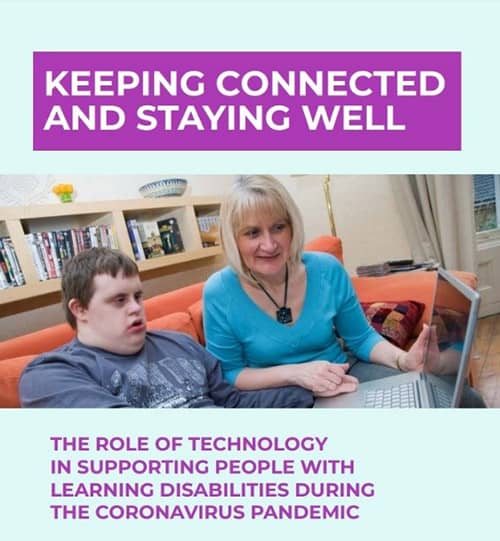
Their support practice therefore evolved over time. It might not have been ‘perfect’ but it was always available.
Following the publication of this report, I began working with the Creating Connections project. The Creating Connections project is a partnership between SeeAbility, Learning Disability England (LDE) and their members. It was a six-month rapid response programme, recruiting local volunteers and deploying peer supporters to help increase the network of support and social connections for people with disabilities most at risk during the pandemic. The programme lead was Veronica Mulenga.
Drawing on our combined research and experience, me and Creating Connections members developed a framework for understanding what is needed in order to provide good support for people with learning disabilities to access and use technologies. This framework makes it clear that supporting people with learning disabilities involves more than basic ICT skills. It involves:
- a set of core beliefs (see below)
- knowledge of the person being supported
- understanding the pros and cons of the kinds of technologies people with learning disabilities might benefit from
- an ability to problem-solve and learn from experience
Core beliefs
- Supporter role: An important part of a supporter’s role is to help people with learning disabilities use technology, if they decide they want to use it.
- Potential of people with learning disabilities: With the right support, people with learning disabilities have the potential to use technology successfully.
- Informed choices: People with learning disabilities should be supported to understand the possible benefits of using technology and the opportunity to express their interest (or lack of interest) in using technology.
- Rights: People with learning disabilities have a right to use technology if they want to. If people with learning disabilities want to use technology, they should be supported to use it.
- Person-centred support: Support to use technology should be customised to ensure that all of the technology needs of a person with learning disabilities are met.
We used this framework to develop a suite of toolkits: one for people with learning disabilities, one for support workers, and one for managers and funders of support services.
Each toolkit:
- Provides advice and guidance on activities to try out.
- Offers a range of case studies and examples of good support in practice.
- Offers links to a wide range of learning disability-specific online resources.
The toolkits are free to use and can be downloaded from these websites:
- https://ordo.open.ac.uk/authors/Jane_Seale/9551018
- https://www.seeability.org/digital-inclusion/staying-connected
The toolkit for support workers
Offers ideas and suggestions to help support workers understand what is possible.
The toolkit for managers
Helps managers understand how they can help support workers to develop their skills by creating the right support environment.
The toolkit for people with learning disabilities
Is designed to help people with learning disabilities talk to their support workers about their technology needs.
In a webinar, hosted by Skills for Care, I explain the toolkits and offer suggestions for how they might be introduced into a support or care organisation.
I’m also working with Digital Unite to adapt material from the toolkits for its online learning platform, Aspire, which offers learning resources for Digital Champions that supports people with learning disabilities. Digital Unite is also developing material to support people with learning disabilities to become Digital Champions.
References
Seale, J. 2020. Keeping connected and staying well: the role of technology in supporting people with learning disabilities during the coronavirus pandemic. Milton Keynes: The Open University. http://oro.open.ac.uk/75127/
Seale, J. 2022. Technology Use by Adults with Learning Disabilities: Past, present and Future design and support practices. Routledge: London.


